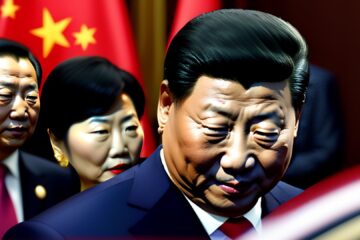Tiktok’s Ban In UK And New Zealand.
Recently, TikTok has been in the news since it has been banned in various nations, most recently the UK and New Zealand. The platform, whose use has increased dramatically in recent years, has also been prohibited by a number of countries, including the US, Canada, the European Union, India, and Taiwan. As Tick Tock is controlled by the Chinese corporation ByteDance, which implies that the Chinese government has access to all the data it collects, the reasons behind these prohibitions include data security and national security issues.
The UK’s prohibition on TikTok on devices owned by the government is justified by the necessity to protect the security and safety of these gadgets. The government has commissioned an assessment by cybersecurity professionals to evaluate the threats posed by specific third-party apps on government devices, including TikTok, as part of its ongoing efforts to make sure that these gadgets are as secure as possible. On the other hand, the restriction in New Zealand is based on the nation’s practice of adhering to the Government Communications Security Bureau’s (GCSB) recommendations when formulating IT and cybersecurity regulations.
Chinese businesses, including ByteDance, have received a deadline from the US to liquidate their shares in TikTok or risk being completely banned from entering the US. This is because there are worries that China may employ software platforms that harm or undermine national security and safety in the United States. The White House has urged Congress to act, and the Restrict Act is a piece of legislation that has the support of both parties.
Read More: McDonald Dominating the Chinese
The regulation that China implemented in 2017 requiring Chinese businesses to provide personal data upon request from the government is the cause of these prohibitions. This implies that all information collected by TikTok, including user information, is accessible to the Chinese authorities. While TikTok asserts that it is protecting user data to the best of its ability and has invested more than $1.55 billion in data security, the fact that the Chinese government has access to this data raises serious concerns for many nations.
Beijing has defended TikTok, criticizing the restrictions and asserting that the problem of data security shouldn’t be used as a tool by some nations to oversimplify the idea of national security, abuse national power, and arbitrarily repress businesses in other nations. Additionally, they note that the US has not shown any evidence that TikTok poses a threat to national security.
TikTok bans extend beyond issues with data security and national security. Afghanistan under Taliban authority has outlawed the platform, stating that Afghan youth are being misled by it. Moreover, Belgium’s government has announced a ban, while Taiwan has outlawed TikTok due to China’s use of the app to spread misinformation on the island.
Read More: McDonald Dominating the Chinese
TikTok’s issues go beyond government gadget restrictions and national security issues. Because of worries about the platform’s effects on mental health and its use by youngsters, it has come under examination and been banned. Although TikTok has made an effort to allay these worries by adding safety features and age restrictions, many people are still skeptical.
In conclusion, TikTok’s prohibitions are a reflection of the rising worries about national security, data security, and the effects on children’s mental health. Although TikTok has made an effort to allay these worries, they are unlikely to disappear anytime soon given that TikTok is owned by a Chinese corporation. It’s unclear what the platform’s future holds as more nations outlaw TikTok.





